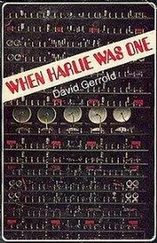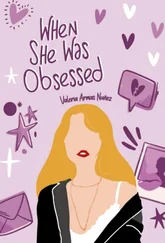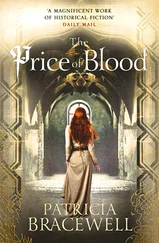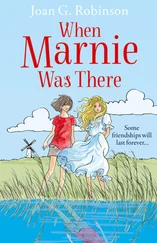Like Boyzone and Take That before them, the Spice Girls are an arch-conservative construct whose media-friendly sex appeal is shot through with the commonsensical philosophies traditionally ascribed to well-behaved but fun-loving teenagers. The Spice Girls are naughty but nice, with a vote-winning dash of cosmetic militancy. Need we look any further than the coy chorus of, ‘If you wanna be my luvah, first you gotta be my friend’ to realize that they follow in a long line of safe pop phenomena that stretches all the way back to Cliff Richard and his pals in Summer Holiday? If BritPop plundered from pop’s past, in the name of Prog Mod revivalism, then the Spice Girls look back to the Mop Top era of Beatlemania, before the music turned weird, and the youthful Fab Four were cheeky professionals on the stage of the Royal Variety Show.
And so this latest phenomenon in British pop is retreating yet again, in terms of its ethos, from the psychedelic garden of 1968 to the positive Eden of 1964. After all, the Spice Girls approached Richard Lester, who directed the Beatles in A Hard Day’s Night , to create their first full-length feature film. Who knows, if BritPop gives way to girl power then Britain might need the Spice Girls like Russia needed a communist Elvis. They could yet become the official state pop of advanced democratic consumerism – the sound of a bright new Britain.
‘… on an ever tightening coil …’
In the big grey apartment, the submarine light seemed to turn moss-green. The grey-painted frame of one of the tall sash windows rattled suddenly, buffeted by the wind. There were going to be some changes around here. During the next ten years, certain … ideas would emerge from the culture, pretty much organically, the sheer brute force of which would take some getting used to. The list would run something like this:
1. Throughout the 1990s, many of the very qualities being demonized as evil Thatcherite 1980s acquisitive competitive cultural bullishness – the whole yuppie arrogance of ‘greed is good’, for instance, or ‘second is nowhere’ – would be simultaneously rehabilitated by popular culture, media and advertising as ‘Attitude’.
2. Pop, for the most part, would cease to be a venue for new ideas and become a site for recycling old ideas.
3. Anxiety and doubt, as an energizing force within cultural practice, would be domesticated and disarmed by a) the comedy of recognition and b) market-formatted cultural production. The effect of these factors produced a culture that appeared to have been designed , by media, retail and advertising. Contemporary art would become fixated on issues of pre-mediation and mediation itself.
4. Brute Authenticity would replace Brute Irony as the temper of the zeitgeist.
5. A consequence of the above would be a pan-media return to gender stereotyping.
6. As the 1990s became fixated on brands and retail culture, so the Trojan Horse of cultural materialism would be Infantilism – seducing the consumer with cosy treats: the caffe latte and the loft conversion. By the year 2000, frothy coffee would appear to be the multi-purpose signifier of urban, credit-based consumer society – the Death by Cappuccino effect.
7. In the 1990s, the cross-cultural pursuit of Authenticity would also provide the ‘bread and circuses’ (most importantly, Popular Factual Programming – ‘reality’ and ‘conflict’ TV – an obsession with ‘celebrity’ and confessional journalism) with which to distract the consumer from the sheer fragility (as demonstrated by the near civic panic during the petrol shortages) of consumer society.
8. This obsession with Authenticity would declare realism to be synonymous with dysfunctionalism.
9. As a site for cultural production, all aspects of the middle classes would be deemed toxic, if not radioactive.
10. By the year 2000, Call Centre Britain would be firmly established. The rhetoric of advertising and retail – the slogans of the Benign Corporation (‘Because Life’s Complicated Enough!’, ‘Every Little Helps!’, ‘What Can We Do to Make It Happen?’) would be based on an idea of intimacy, empathy and personal contact with the customer. The reality behind the rhetoric would be a culture of endlessly deferred accountability, in which there was no one, ultimately, whom the consumer could challenge as responsible for the fair running of The System. Translated into the dynamics of a family, the consumers became children (remember the Trojan Horse of Infantilism a little earlier on?) to the parents of the Benign Corporation, who promised comfort but handed out abandonment.
11. The end result of these ideas would be the feeling that, we, the consumer democracy, were in fact post-political – and afflicted with a Fear of Subjectivity.
The lost young men of Campbell and Wisniewski just didn’t seem hip to the Attitude of the Nineties – they were too awkward, too obscure, too strait-laced, too fey. As culture-vulturing city slickers, all they could do was carry on sitting there. Sighing, perhaps. Fairly soon, all the elitist smarty-pants twiddly bits of Eighties post-modernism – Style Culture, atria, nouvelle cuisine, Jeff Koons – would be declared (in public, at any rate) An Enemy of the People.
The culture of self-conscious artifice had been replaced by a culture of self-conscious authenticity. And as the margins of culture were fed into the conservative, market-dictated flow of the mainstream, it would take some fancy footwork to remain oppositional. But oppositional to what? What did the term mean nowadays? In many cases, the only way to become culturally confrontational was to make a choice to cease your cultural production – to culture strike, as the writer, punk historian and activist Stewart Home would declare and demonstrate.
Howard Devoto
Of all the icons assembled in the pantheon of punk, Howard Devoto could most probably lay claim to being the most enigmatic and the most revered. He was described by Pete Frame (the creator of the Rock Family Trees ) as ‘the Orson Welles of punk’, and pronounced in a tribute song by Momus to be ‘The Most Important Man Alive’. Morrissey stated that it was Devoto whom he had in mind when he wrote ‘The Last Of the Famous International Playboys’, while Paul Morley claimed that Devoto introduced a ‘new literacy not just into punk, but into rock as a whole’. He has also been cited as an influence by novelists as different in style as D. J. Taylor and Jeff Noon.
And yet Devoto himself remains mysterious. His guru-like status has been all the more respected for the dignified manner in which he has allowed his body of recorded work and published lyrics to represent him. Having co-founded and founded, respectively, two of the most influential groups of the punk period, the Buzzcocks and Magazine, he then went on to record a solo album, Jerky Versions of the Dream , before forming his third and final group, Luxuria, in 1986.
He ceased recording professionally in 1990, preferring the anonymity of a day job to some kind of honorary position in the music business as an elder statesman of cultural revolution. He could therefore also claim to be ‘the T. E. Lawrence of punk’. With regard to his current employment, Devoto has little to say. ‘I am the manager of the archive at a leading photographic agency in central London. I also receive royalties from my recordings.’ He is neither open nor defensive about his working life beyond music, except to say that his work with Luxuria did not deliver the support he required to proceed.
‘There was something very limiting about punk,’ he states, in a tone that is both assertive and measured – Alan Bennett without the soft edges – ‘and in the early days that was punk’s strength. You knew your themes, you knew how to look and you knew your musical style. And there you were, for a while. But I’d loved all kinds of other music up to that point. There was some big elemental thing that happened with the Sex Pistols, but in terms of music there was a whole gamut of other stuff which I had liked, and which, in the realm of ideas, were not totally different tins of biscuits – Leonard Cohen, Dylan, David Bowie. With the Pistols and Iggy Pop, it was the anger and poetry which hooked me in, really.’
Читать дальше












